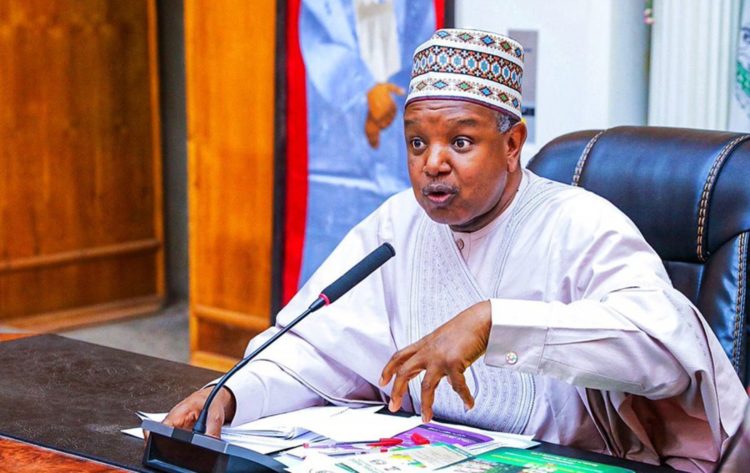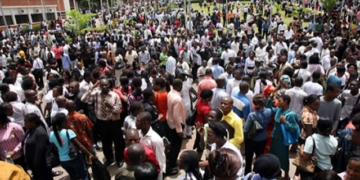The Nigerian Economic Summit Group (NESG) has said one of Nigeria’s pressing concerns is the need to translate economic growth into improved living standards for all its citizens.
The private sector think-tank said despite experiencing growth at an average rate over the years, the country grapples with rising unemployment, income disparity, and multidimensional poverty.
“Nigeria must chart a trajectory that ensures inter-generational and sustainable growth. The nation has encountered various economic and political obstacles in recent years, underscoring the urgent need to redesign its systems and address structural issues,” chairman of the NESG board, Olaniyi Yusuf remarked yesterday at the pre-29th Nigerian economic summit press briefing in Abuja, yesterday.
In reply, the minister of budget and economic planning, Abubakar Atiku Bagudu said there is an urgent need to set priorities for the new administration that was billed to assume power on May 29, 2023.
He said the upcoming summit would provide a timely opportunity for a national economic review and create unanimity amongst all Nigerians on the need to actively prioritise the pursuit of economic growth that can sustainably create jobs, lift millions out of poverty and enable Nigeria to realise its economic potentials.
Senator Bagudu said the theme of this year’s summit “Pathways to Sustainable Economic Transformation and Inclusion” was chosen to discuss the imperatives for transforming the nation’s economy while ensuring inclusivity.
He said the discussions around the theme will be dimensioned across five sub-themes; namely, stimulating economic growth; mobilising finance for sustainable development; harnessing Human capital development; promoting national cohesion & inclusion; and reforming public institutions.
Nigeria has a predominantly young population and a high debt burden, with a broad decline in poverty worldwide. Both extreme and moderate poverty remain and continue to increase in the country.
Mr Yusuf said as Nigeria witnesses the seventh consecutive democratic transition of power, Nigerians are confronted by critical challenges that demand equitable and resilient economic development.
Nigeria stands at a unique juncture to chart a course towards shared prosperity and overcome long-standing obstacles that have impeded our socio-economic progress.
“In the face of a rapidly changing global economic landscape and increasing inequalities, a strategy for sustained growth must ensure a form of industrialisation that makes opportunities accessible to all people and broadly distributes income and non-income gains across society.
“Our inability to fully integrate solutions to social issues into targeted industrial and economic policies undermines the developmental potential of our country, thus widening income inequality gaps,” he stated.











